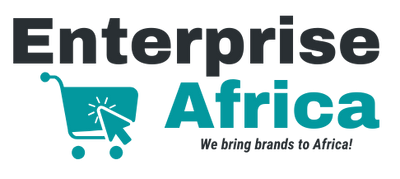The tool industry in Africa
The Tool industry is very diverse and consists of several sub-segments. It is mainly assigned to the metal industry and describes the manufacture of hand tools, machine tools, metalworking tools and agricultural equipment.
The African power tool industry alone is forecast to grow up to approximately US$ 7.3 billion by 2027. Africa is experiencing rapid urbanisation and the African Free Trade Area (AfCFTA) is expected to boost intra-African trade by reducing tariffs. Increasing investment in African housing has led to a significant increase in demand for tools. Infrastructure is still in need of development in many African regions.
As African trade grows and infrastructure expands in many countries, demand for tools is bound to increase.
The tools most frequently imported into African markets are machine tools, hand tools as well as power and drawing tools. Since the Covid 19 pandemic, more and more business in the tool industry is also being done online. Both B2C and B2B E-Commerce are growth markets across Africa.
African tool markets with high growth potential include Nigeria, South Africa, Kenya and Botswana.
The tool industry in South Africa
The manufacturing industry is an important cornerstone of the South African economy. The direct tooling industry alone represents a ZAR 15 billion (approx. € 906.24 million) market in South Africa. However, it has been suffering from technological stagnation, loss of capacity and competitiveness, lack of transformation and increased imports for several years. Local production went down from 80% of the market to about 20%.
In 2019, South Africa imported machinery worth approximately US$ 21.2 billion and tools & instruments with a total value of US$ 2.61 billion, of which 22.5 % came from Germany. The country is one of the most important importers of German machine tools. In 2014, for example, South Africa was responsible for 60 % of the Africa turnover of the German company Bosch.
The tool industry in Nigeria and Kenya
Nigeria imported machinery worth about US$ 10.4 billion and tools & instruments worth a total of about US$ 639 million in 2019. This includes, for example, power tools worth US$ 48.9 million. Of these tools, 15.7% were imported from the United Kingdom and 12.5% from Germany.
From Germany, Nigeria imported machinery worth about US$ 501 million and tools & instruments worth about US$ 47.5 million in 2019. From Switzerland, the country imported machinery worth about US$ 40.9 million and tools & instruments worth about US$ 16.4 million in 2019. In the same period, Nigeria imported machinery worth about US$ 56.2 million and tools & instruments worth about US$ 2.79 million from Austria.
Kenya, on the other hand, imported machinery worth about US$ 3 billion and tools & instruments worth a total of US$ 271 million in the same year.
From Germany, Kenya imported machinery worth about US$ 172 million and tools & instruments worth about US$ 33 million in 2019. From Austria, the country imported machinery worth about US$19.7 million and tools & instruments worth about US$ 5.28 million. From Switzerland, Kenya imported machinery worth about US$ 16.2 million and tools & instruments worth about US$ 5.43 million.
Opportunities for companies from the DACH region
The countries of the DACH region already export tools of all kinds to African markets. Tool manufacturers from the DACH region can benefit from the growing demand for tools in Africa by maintaining existing connections and expanding networks.
Growing infrastructures, the AfCFTA facilitated intra-African trade and the "Made in Germany / Austria / Switzerland" seal offer companies from the tool industry in the DACH region good opportunities to expand their business in Africa or to enter the market for the first time.
Conclusion
Tools and machines are in demand in African markets. The demand for tools and machines continues to rise, especially due to the expansion of infrastructures, the growing population and the facilitation of intra-African trade.
Local manufacturers are often no longer able to meet this entire demand due to a lack of innovation. For this reason, tool imports to African countries have risen considerably in some cases in recent years. African markets offer opportunities for international tool and machine manufacturers to enter the market and expand their business. The E-Commerce sector, in particular, continues to grow and offers opportunities to strongly expand B2B business.
About Enterprise Africa
Let us competently market your products in the fastest growing African economies.
Our focus is on the regionally important economic centres: South Africa, Nigeria, Ghana, Kenya and Ethiopia.
The Enterprise Africa platform is based in Africa and offers international exporters the opportunity to sell their products locally on the African market. We enable you to carry out 100% secure and risk-free transactions.
Your products will only be shipped after the full payment amount of the of the order has been received. We offer you logistics solutions tailored to your products and support you in operating successfully in all in all the major economic regions of Africa.
We also offer you the option of having your products delivered to South Africa as a Level 2 B-BBEE supplier to bulk buyers.
